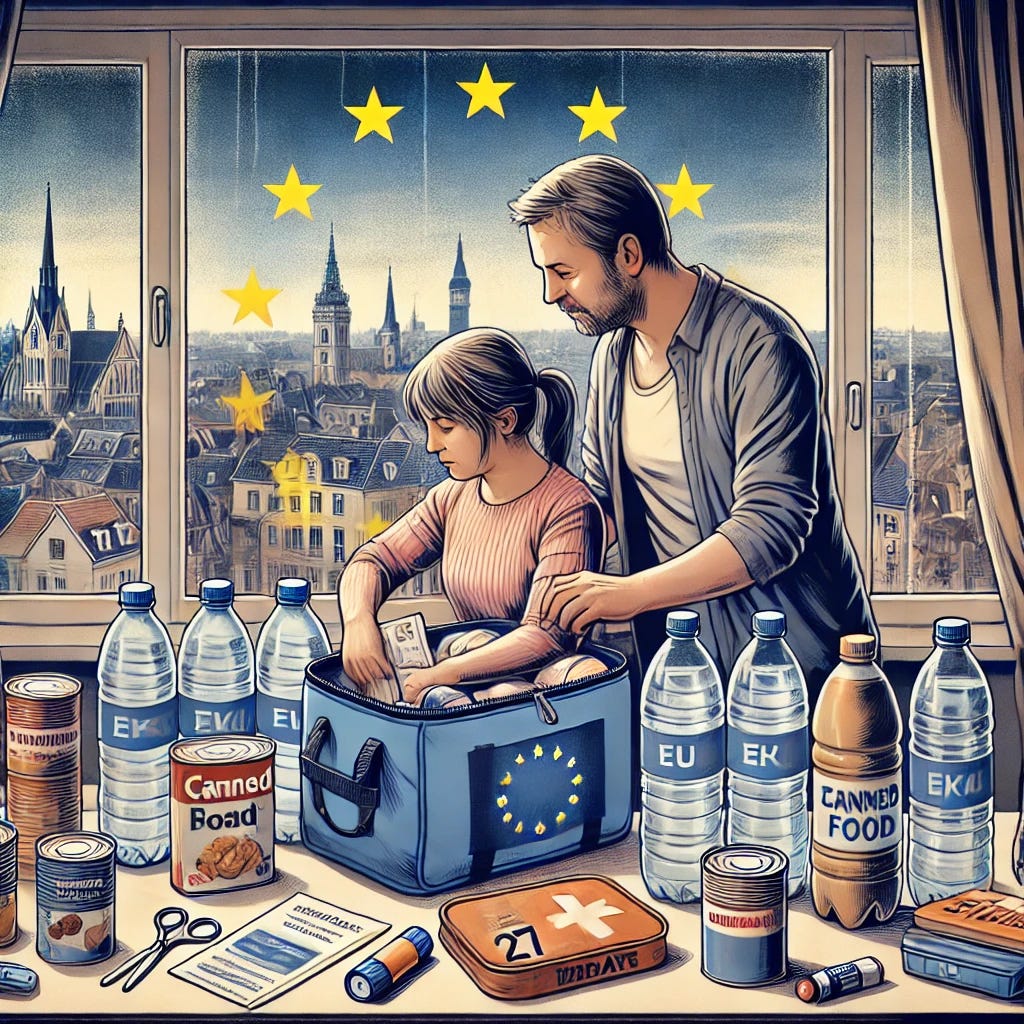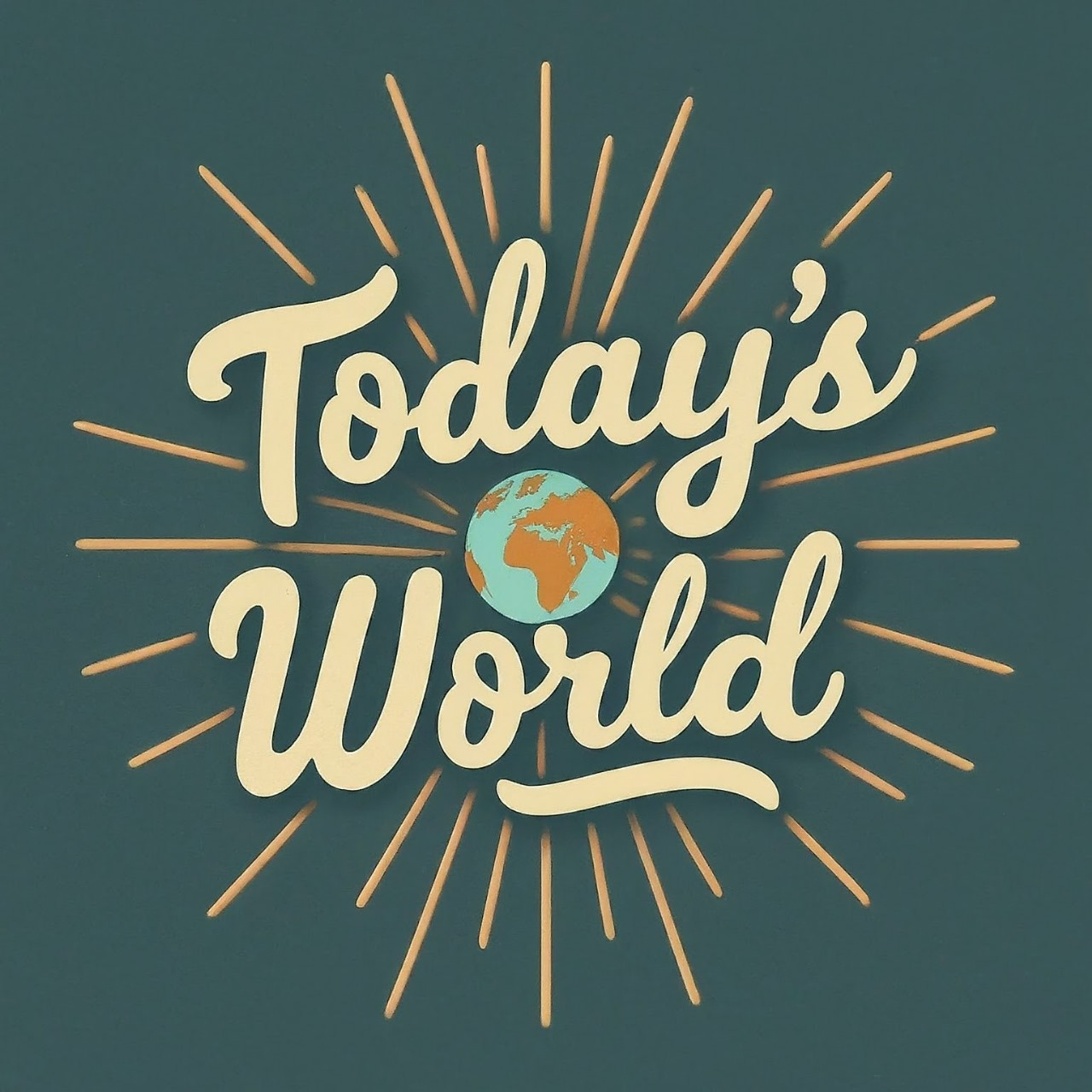Prepare for World War III
it may happen anytime now
Happy Thursday! As the weekend inches closer, let’s talk about something that might sound straight out of a dystopian novel but is actually very real: the European Union’s latest survival plan.
No, this isn’t about stockpiling toilet paper like it’s 2020 all over again.
Instead, the EU is now urging every household in its 27-nation bloc to have a three-day survival kit, just in case disaster strikes.
Sounds intense? Well, let’s dive in.
⚡The survival starter pack
EU crisis management commissioner Hadja Lahbib announced that the proposal is part of a broader 'preparedness strategy' aimed at ensuring self-sufficiency for 72 hours in the event of war or natural calamities.
Citizens are advised to stock up on essentials like matches, bottled water, energy bars, and even ID documents in waterproof covers. It’s like prepping for a camping trip but with much higher stakes.
This move comes amid rising tensions in Europe, with leaders cautioning that the Ukraine invasion might escalate into a broader conflict.
Some Scandinavian countries have already taken steps to prepare their citizens, distributing war survival guides and conducting evacuation drills.
But why now?
The idea of prepping for a crisis isn’t new.
Finland, Sweden, and Norway have been proactive about civilian preparedness for years.
But the EU’s sudden push for widespread readiness aligns with growing security concerns. French President Emmanuel Macron recently stated, "The Russians have globalized the war in Ukraine," fueling worries that the conflict could spread beyond Ukrainian borders.
Even beyond war, Europe has witnessed multiple crises in recent years, from extreme weather events to cyberattacks, making emergency preparedness more relevant than ever.
And let’s not forget how quickly panic-buying emptied store shelves at the onset of the COVID-19 pandemic. Learning from past chaos, the EU wants citizens to be ready before disaster knocks.
Could this happen elsewhere?
While Europe is taking the lead in formalizing survival kits, the concept isn’t exclusive to the EU.
Other countries, including the U.S. and Japan, have longstanding disaster preparedness programs, encouraging citizens to keep emergency supplies on hand.
If anything, the EU’s initiative serves as a reminder that being ready for unexpected crises is a universal necessity.
So, if you had to survive for three days without electricity, internet, or access to stores, what would you pack?
Comment down below!So, that’s it for today. If you found this edition interesting and entertaining, please drop a like and follow us for more!
See ya👋



